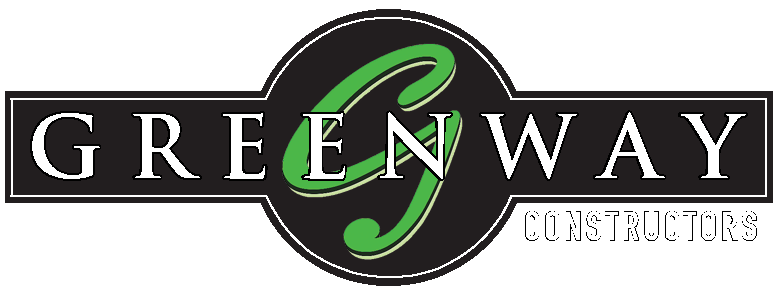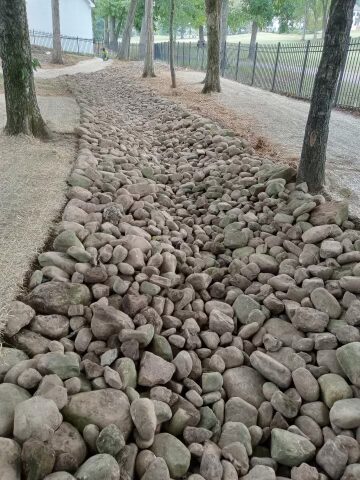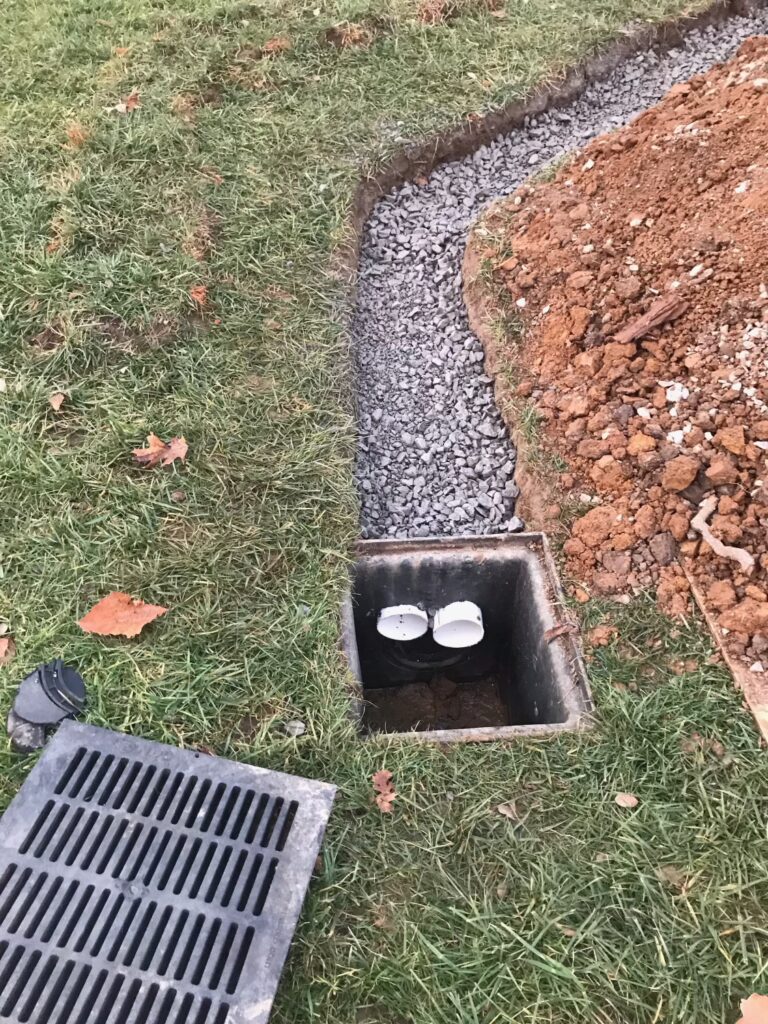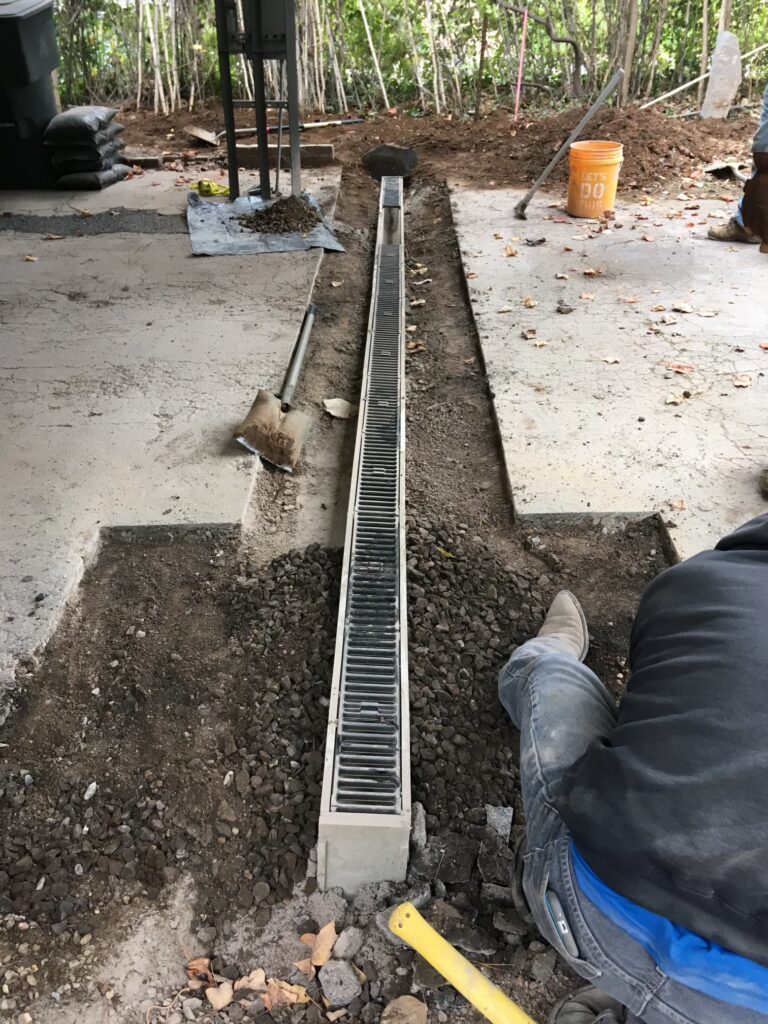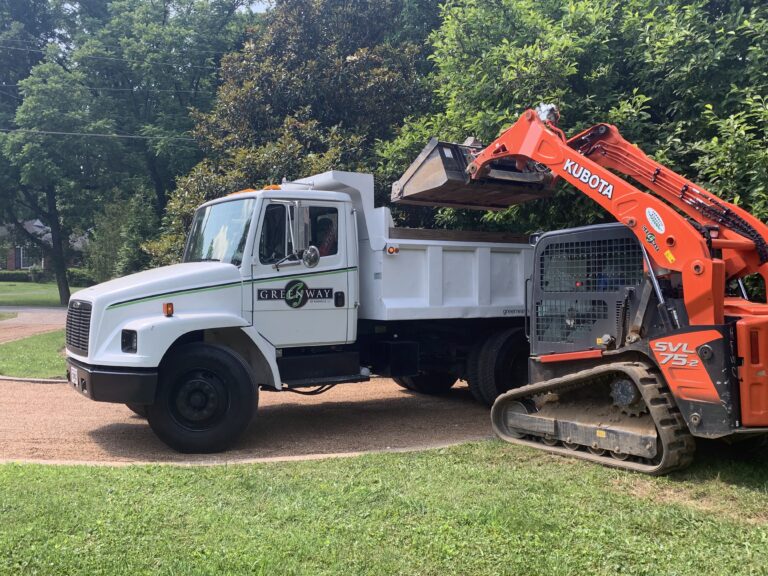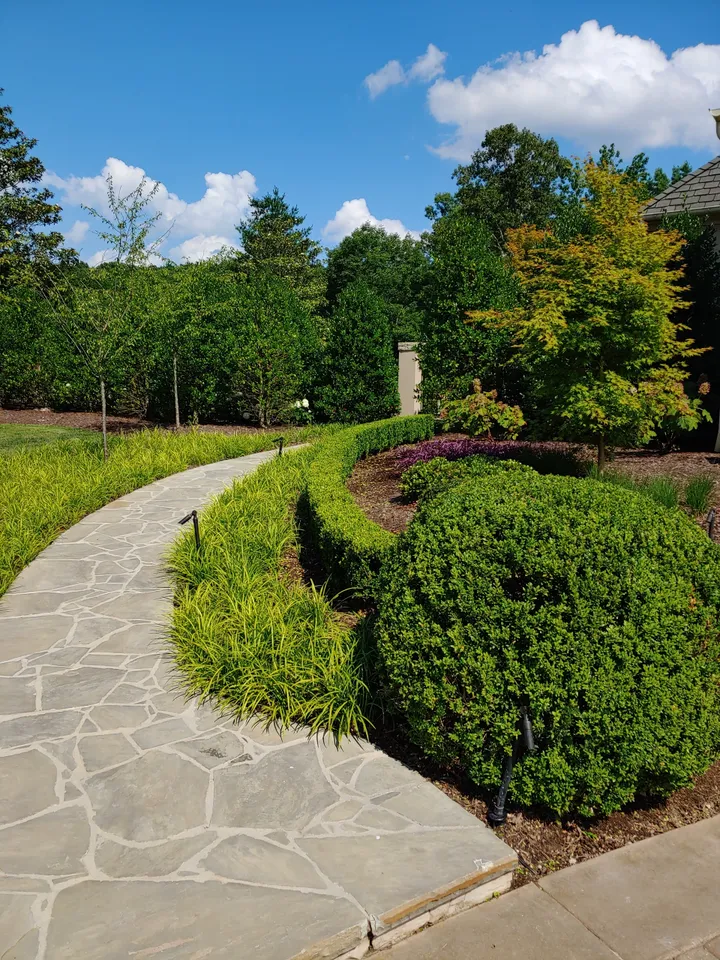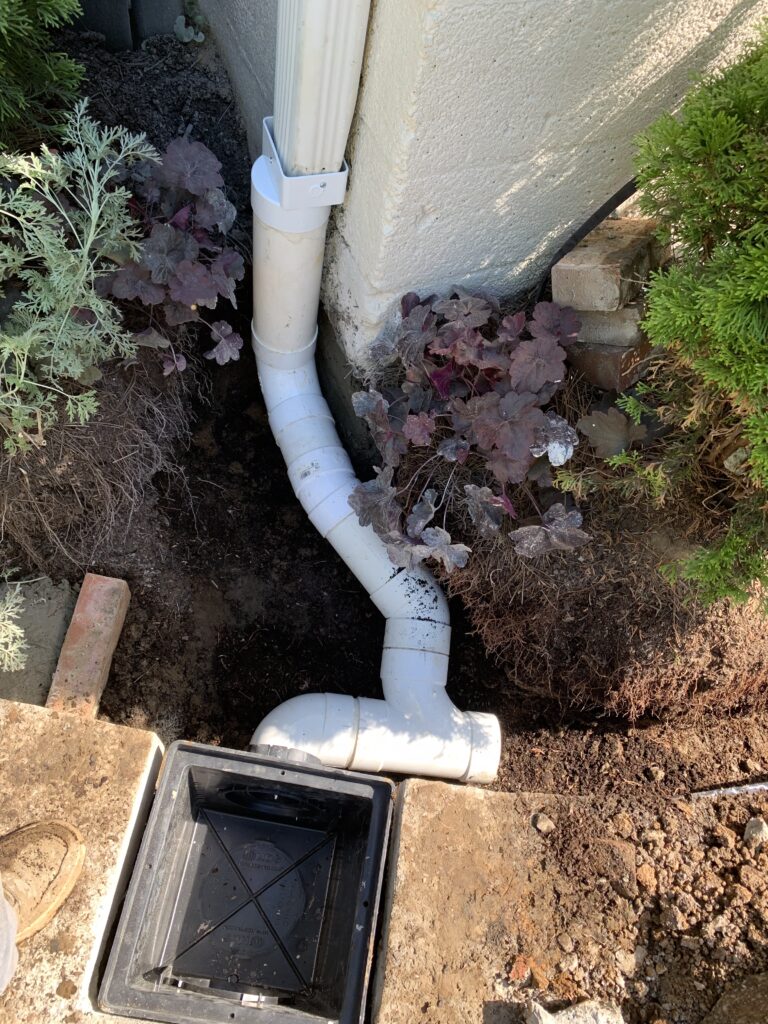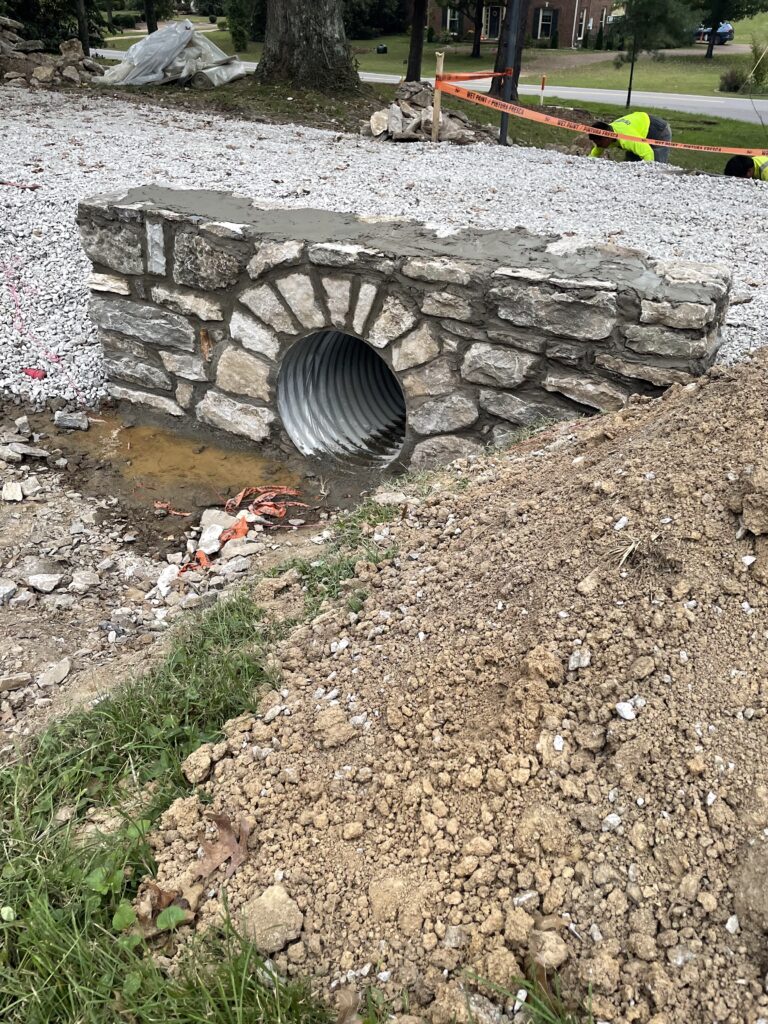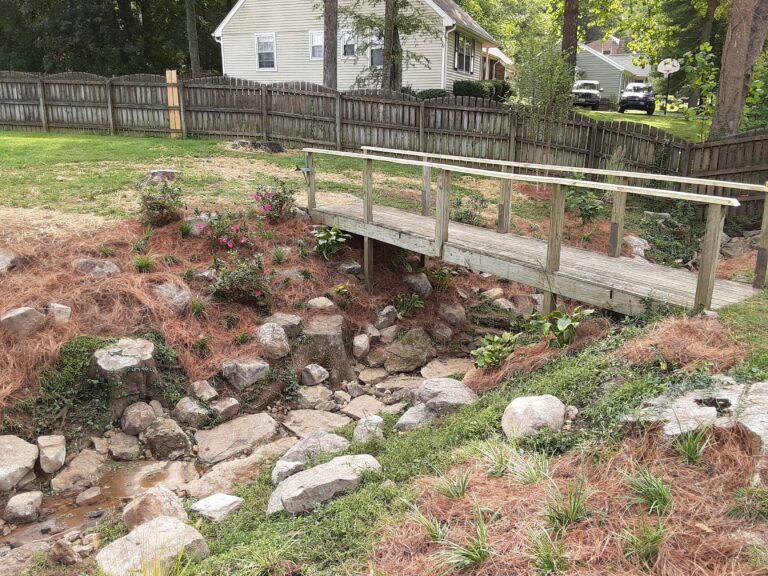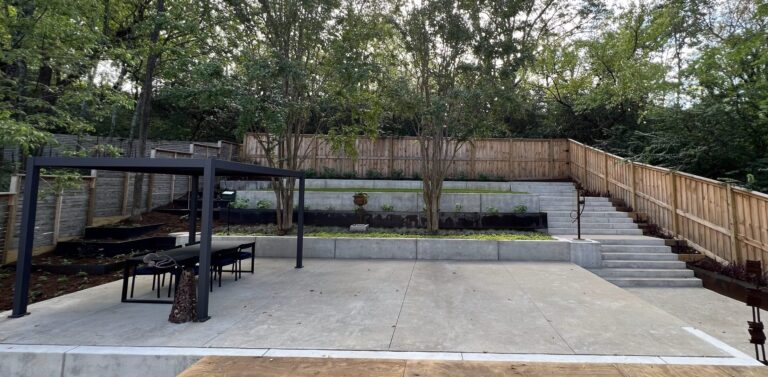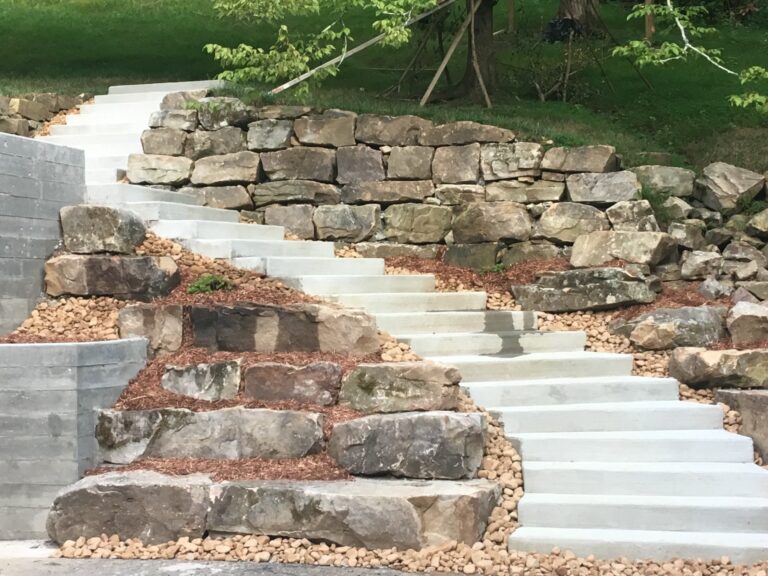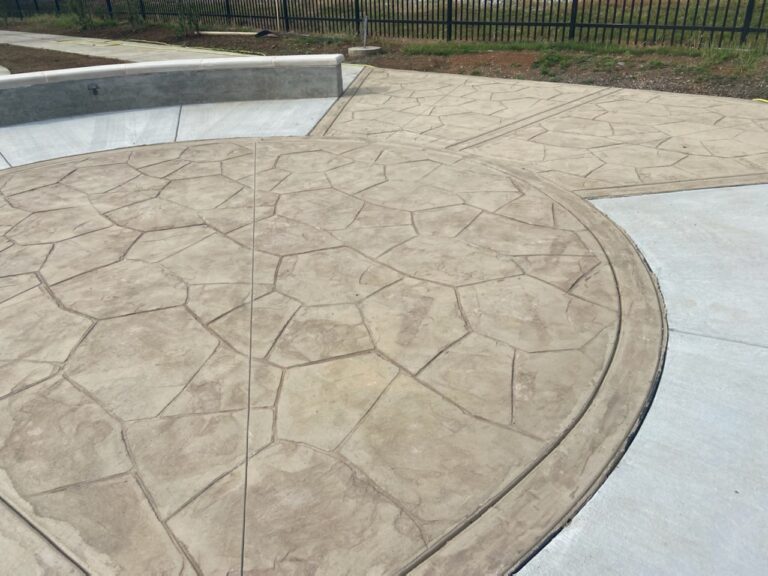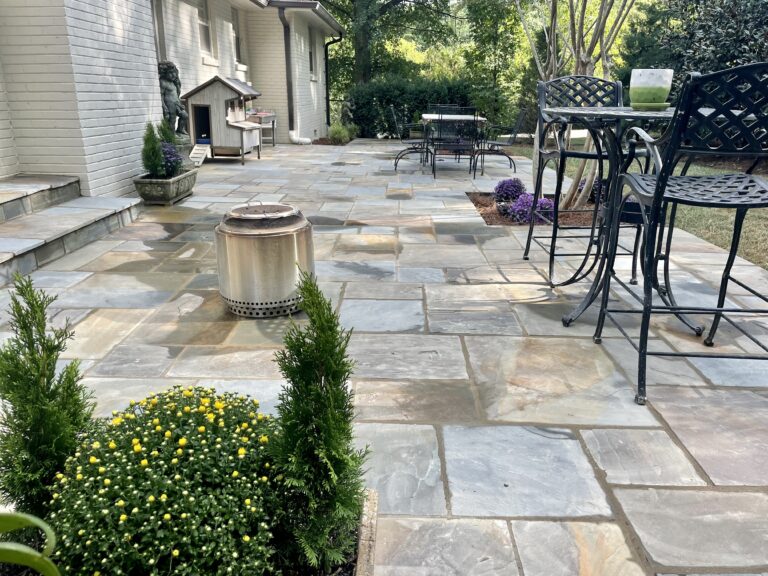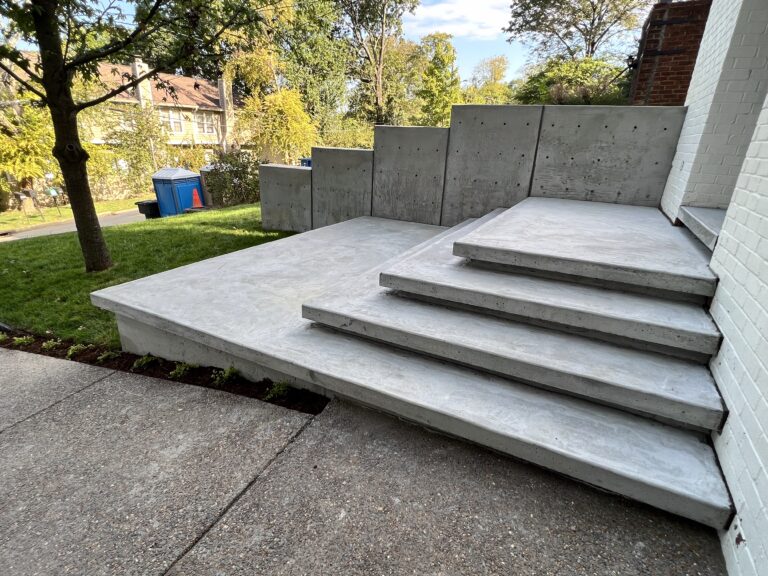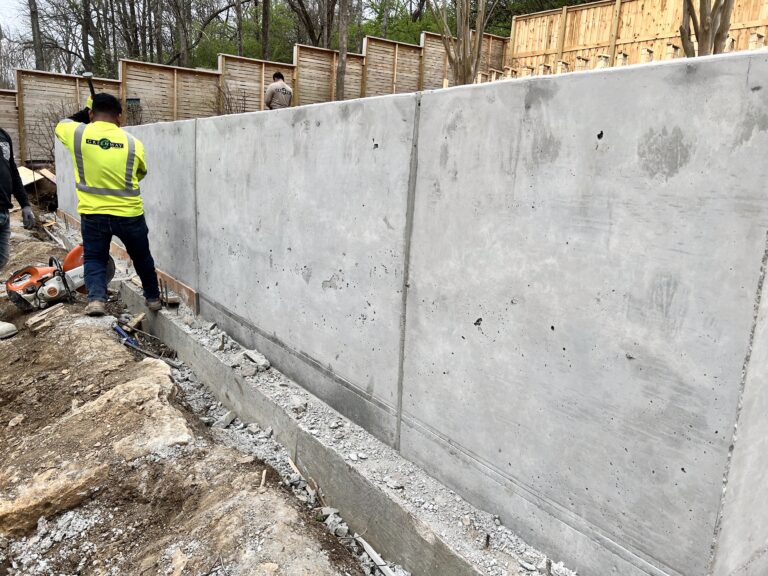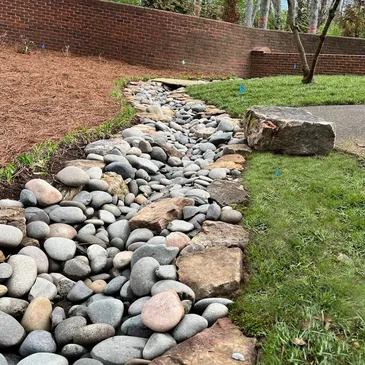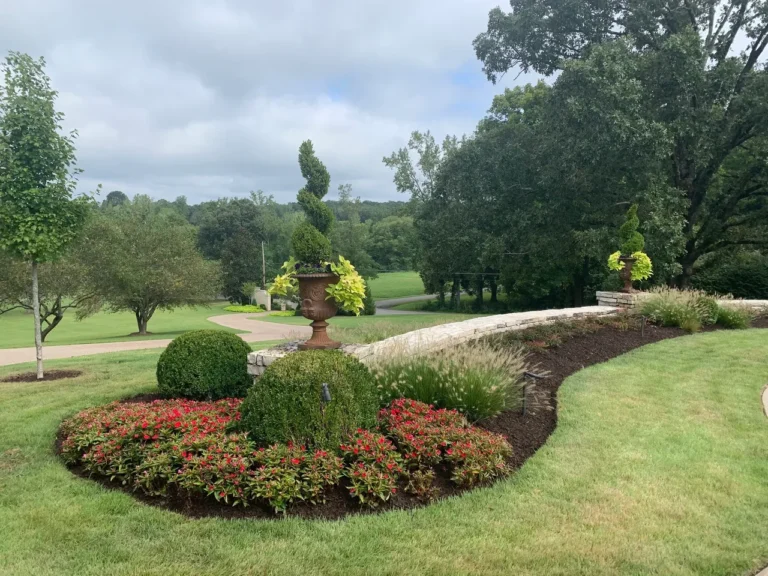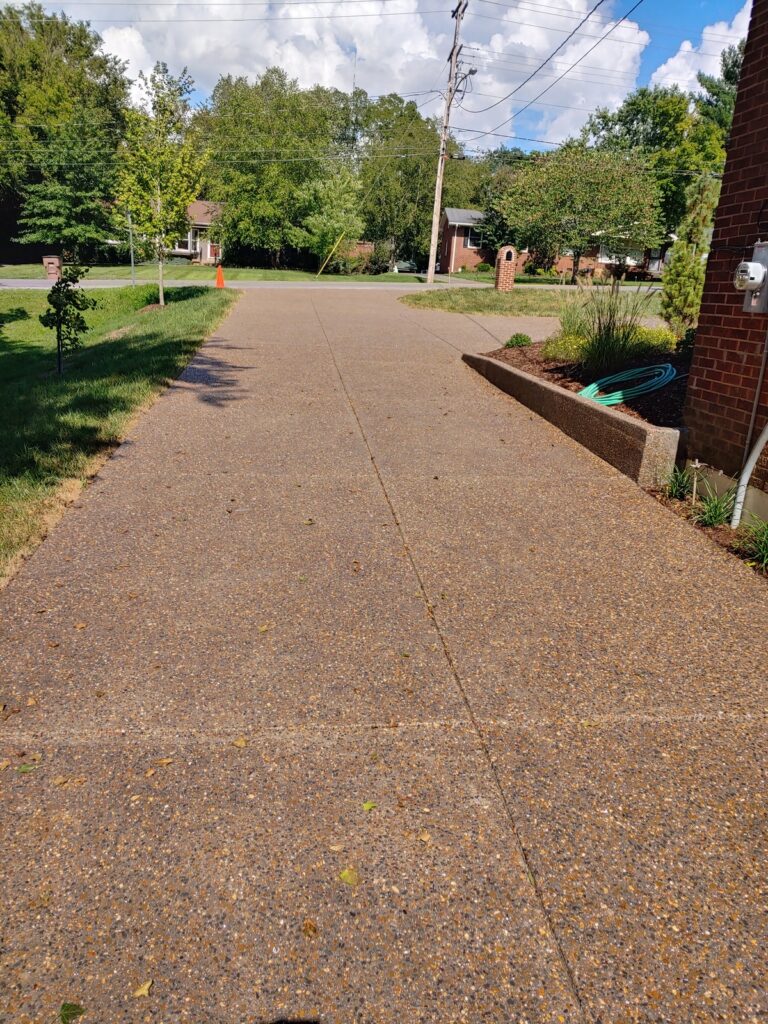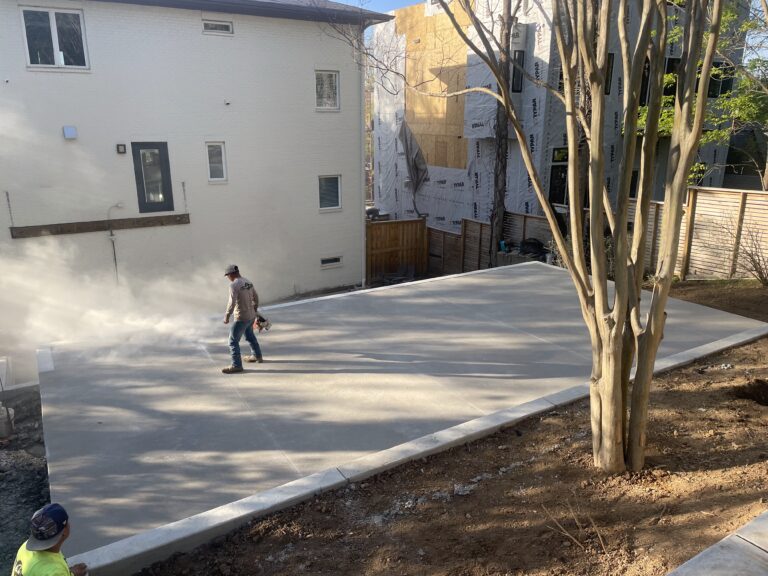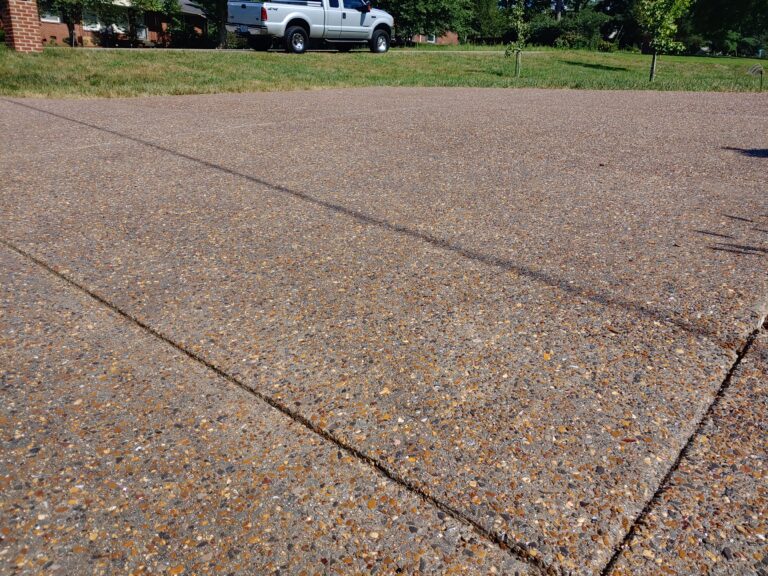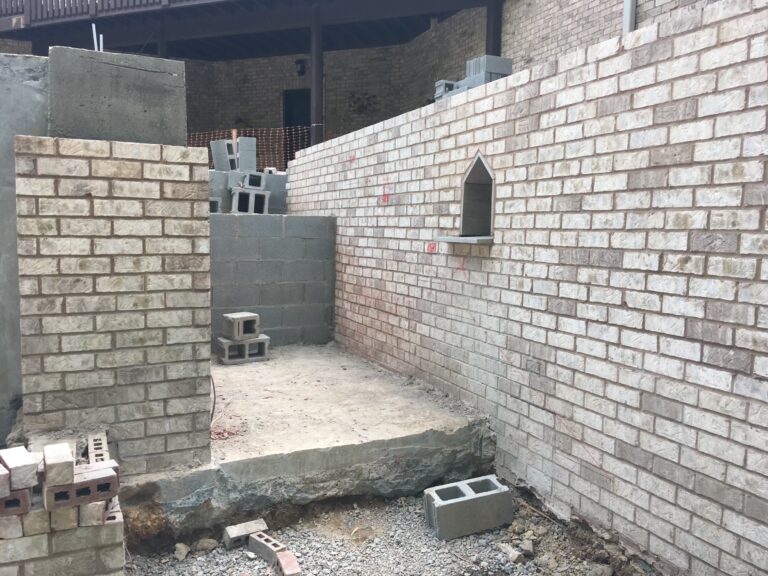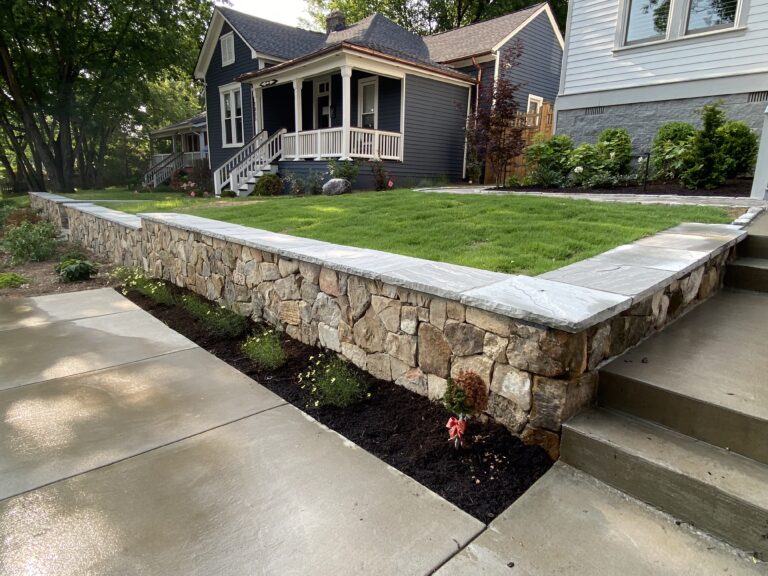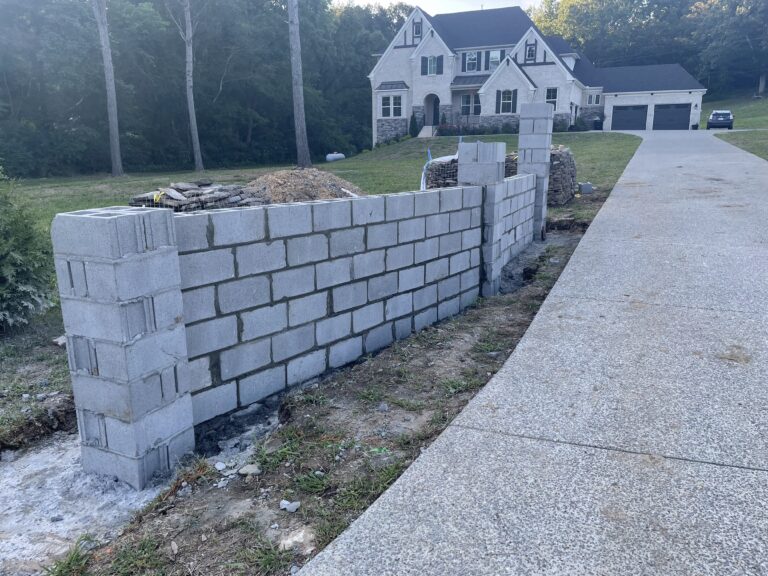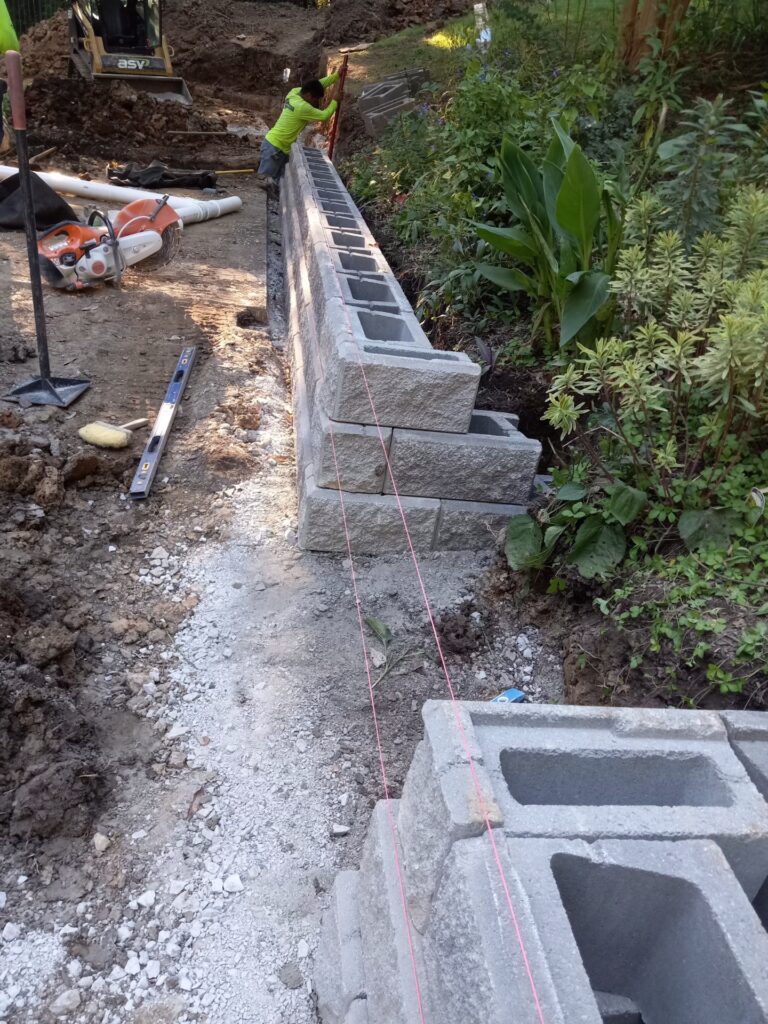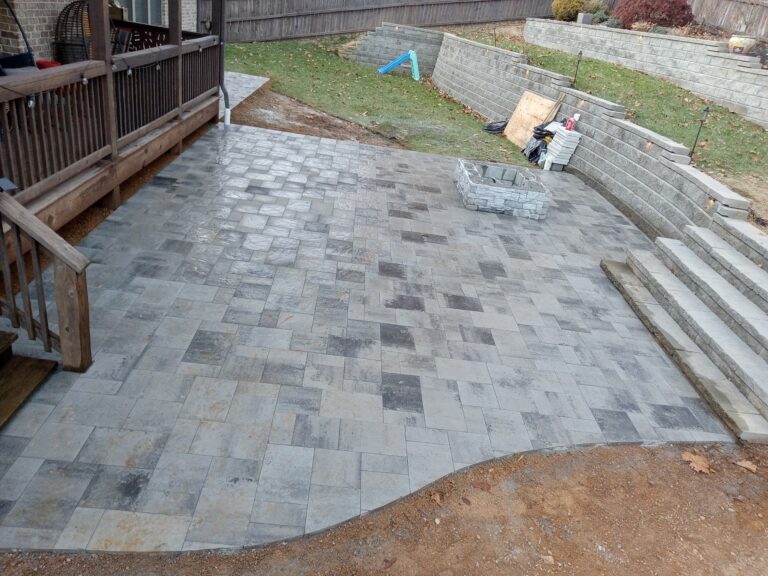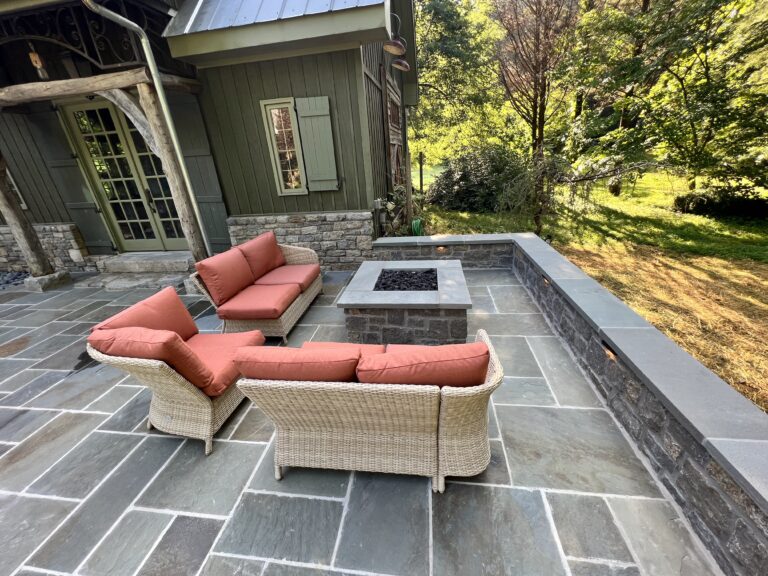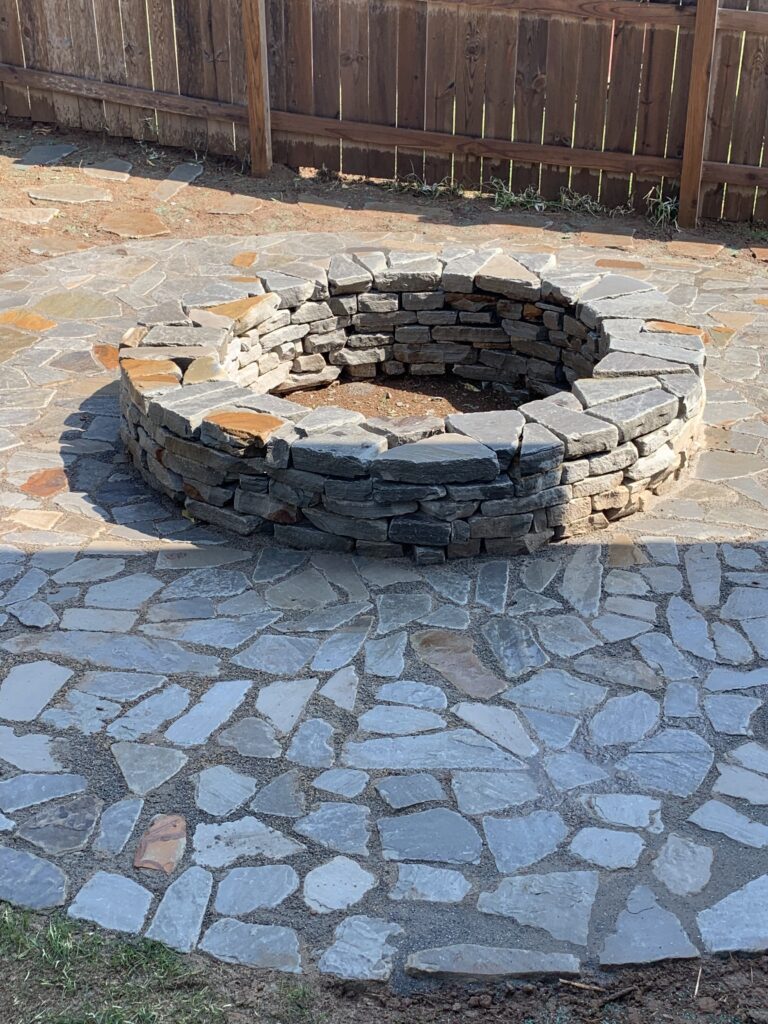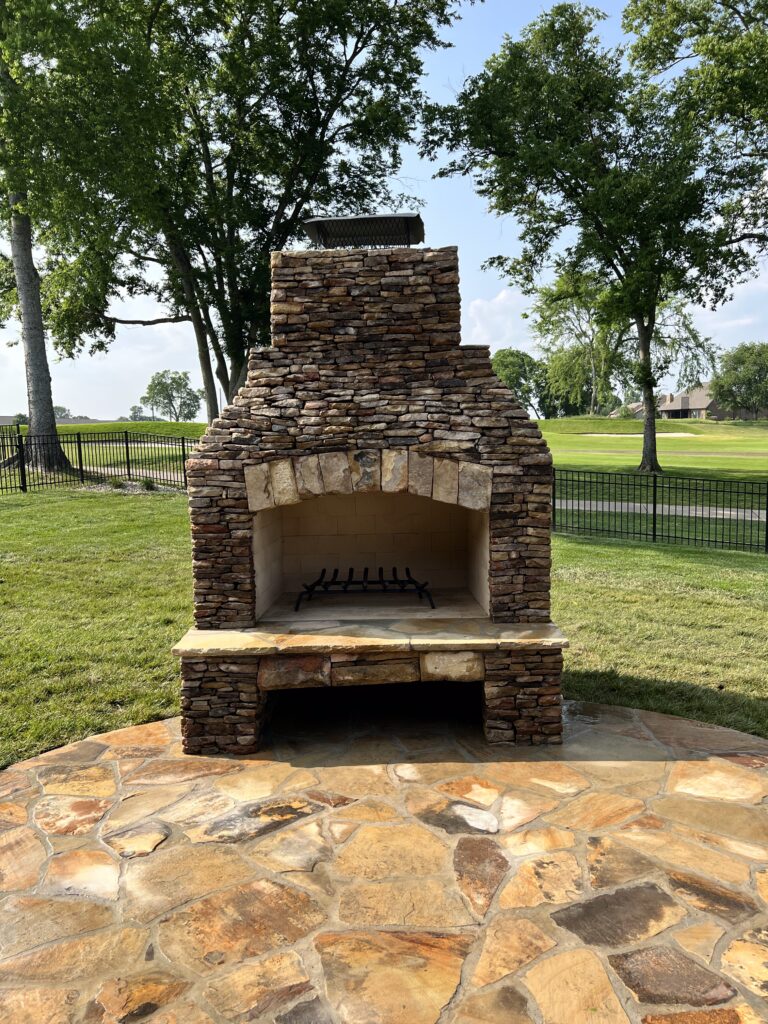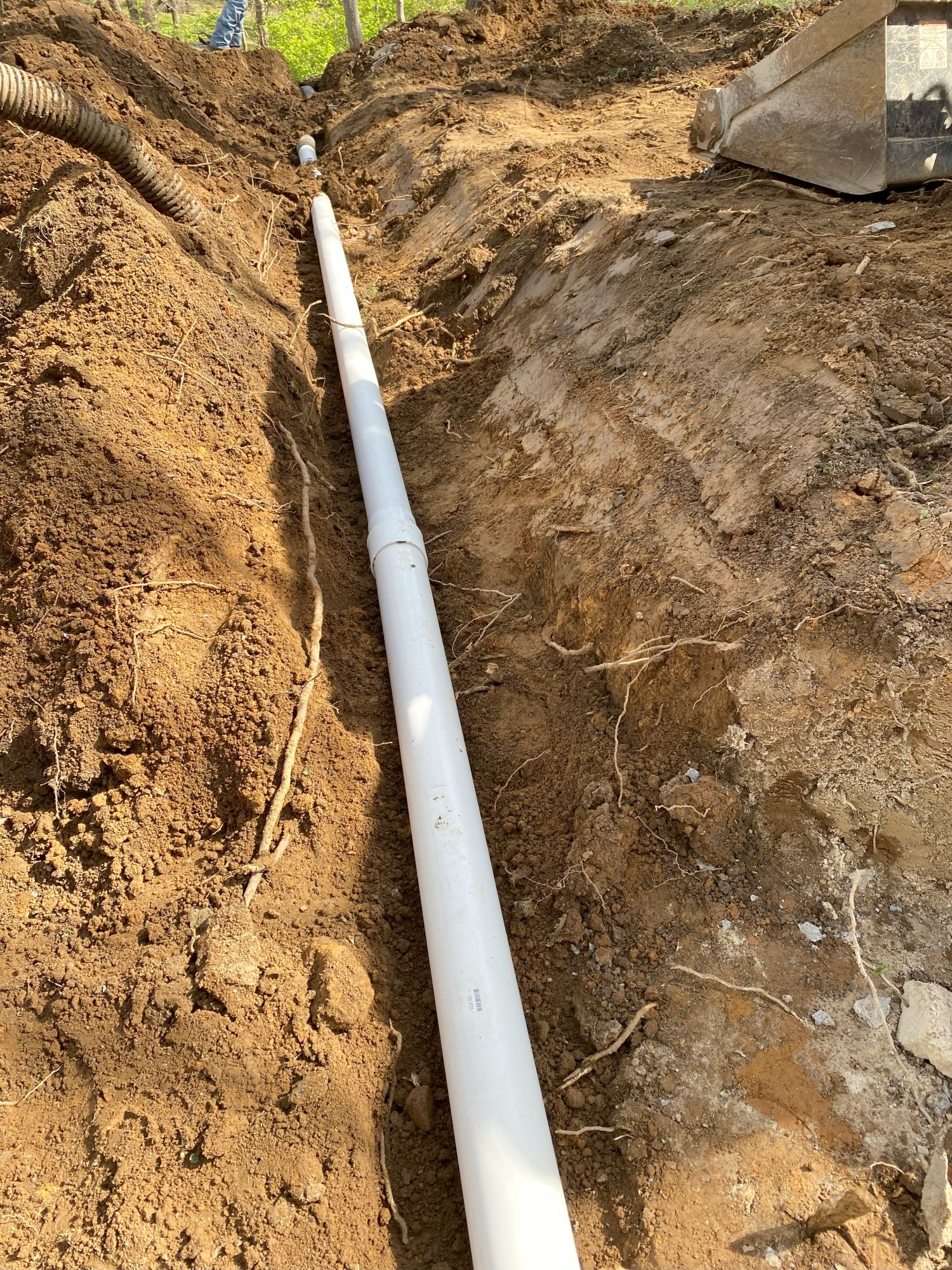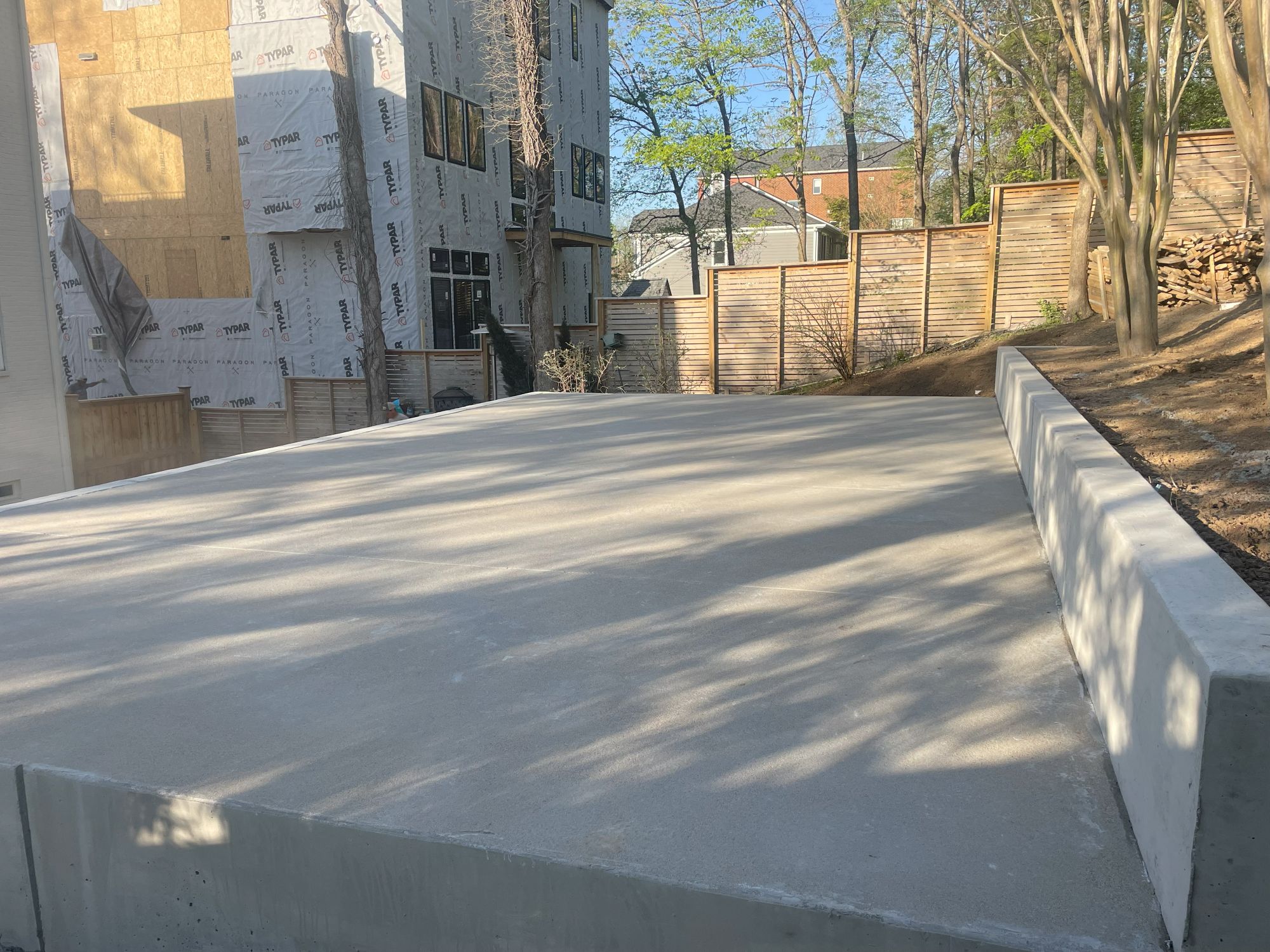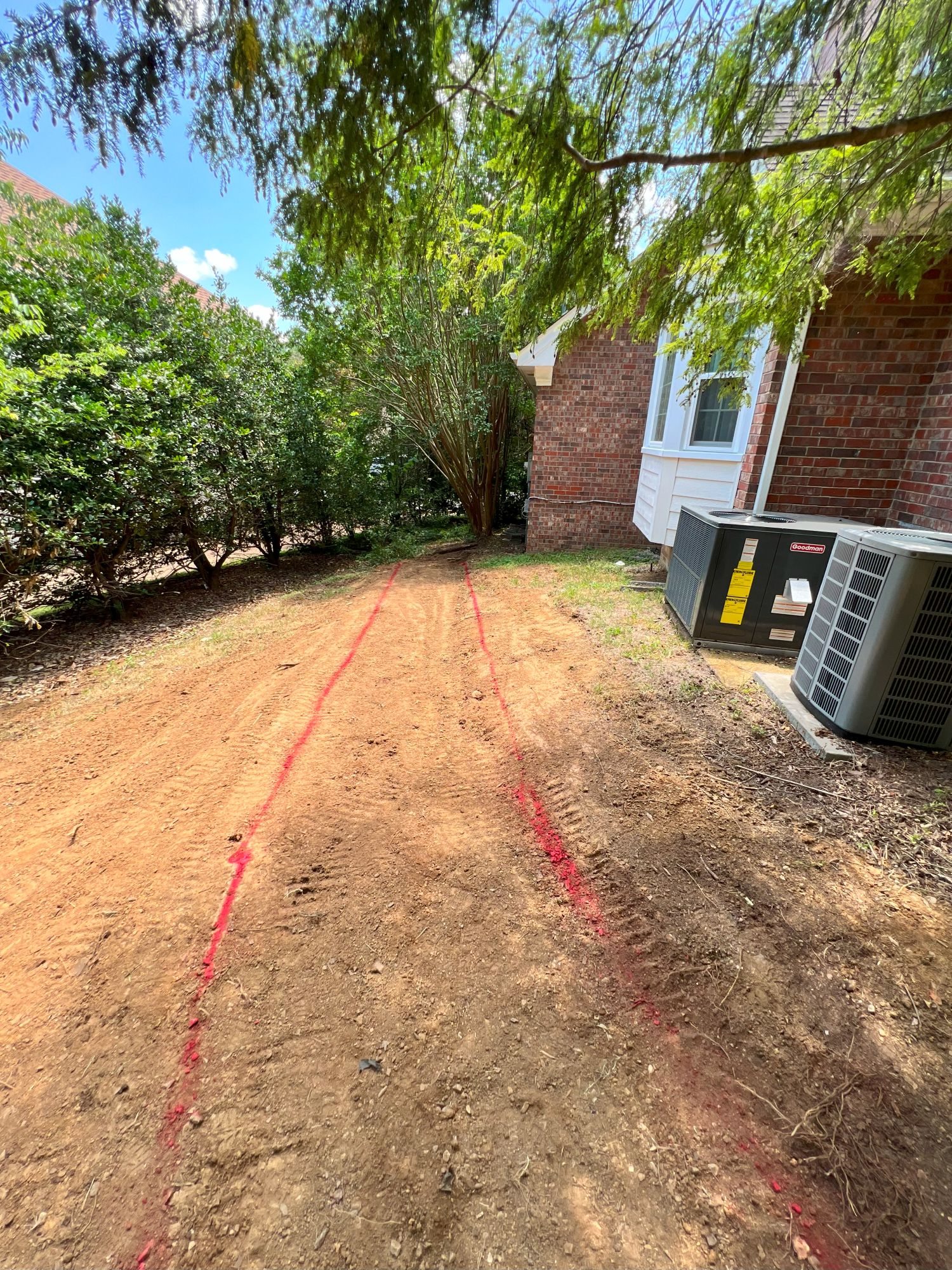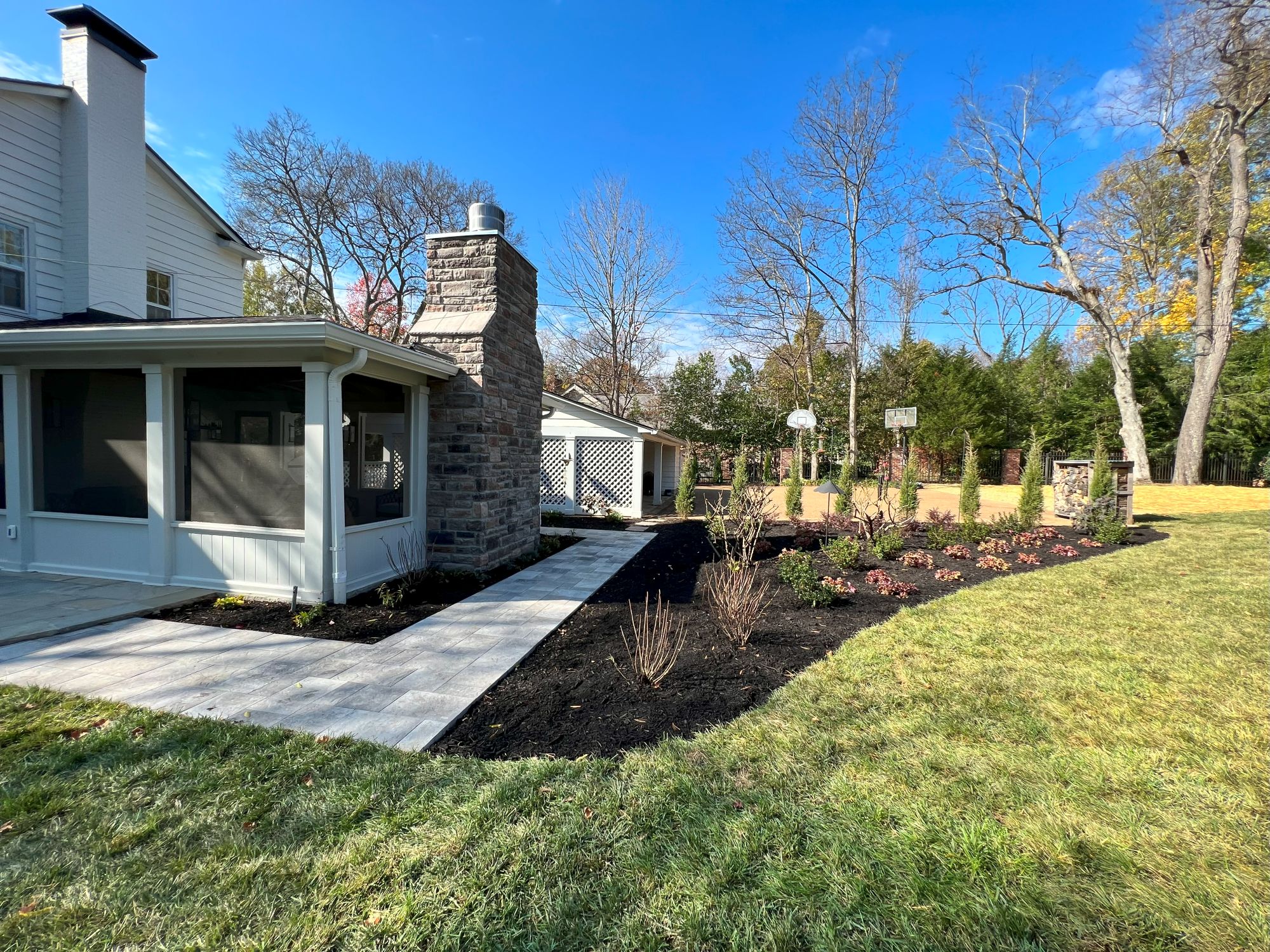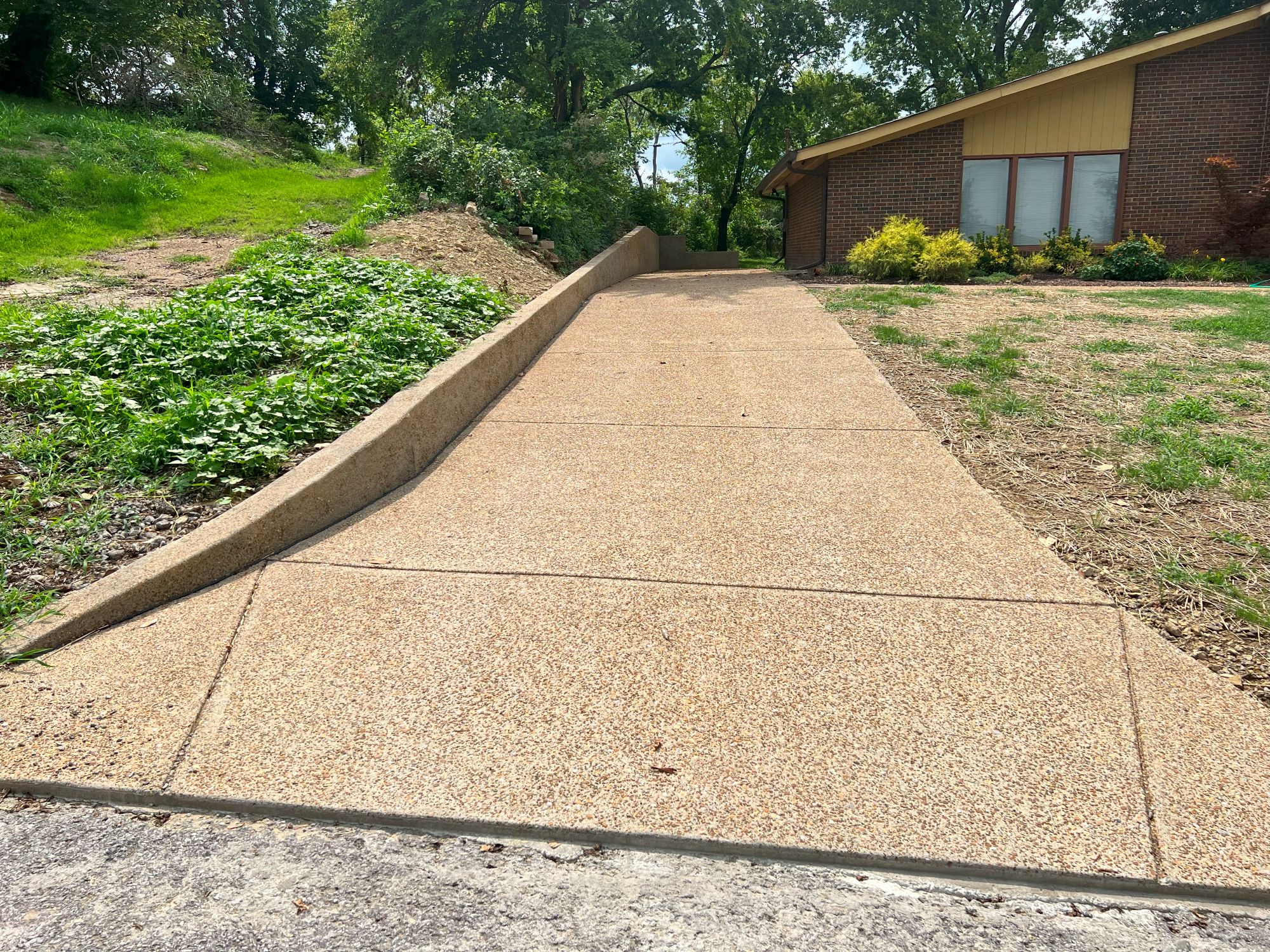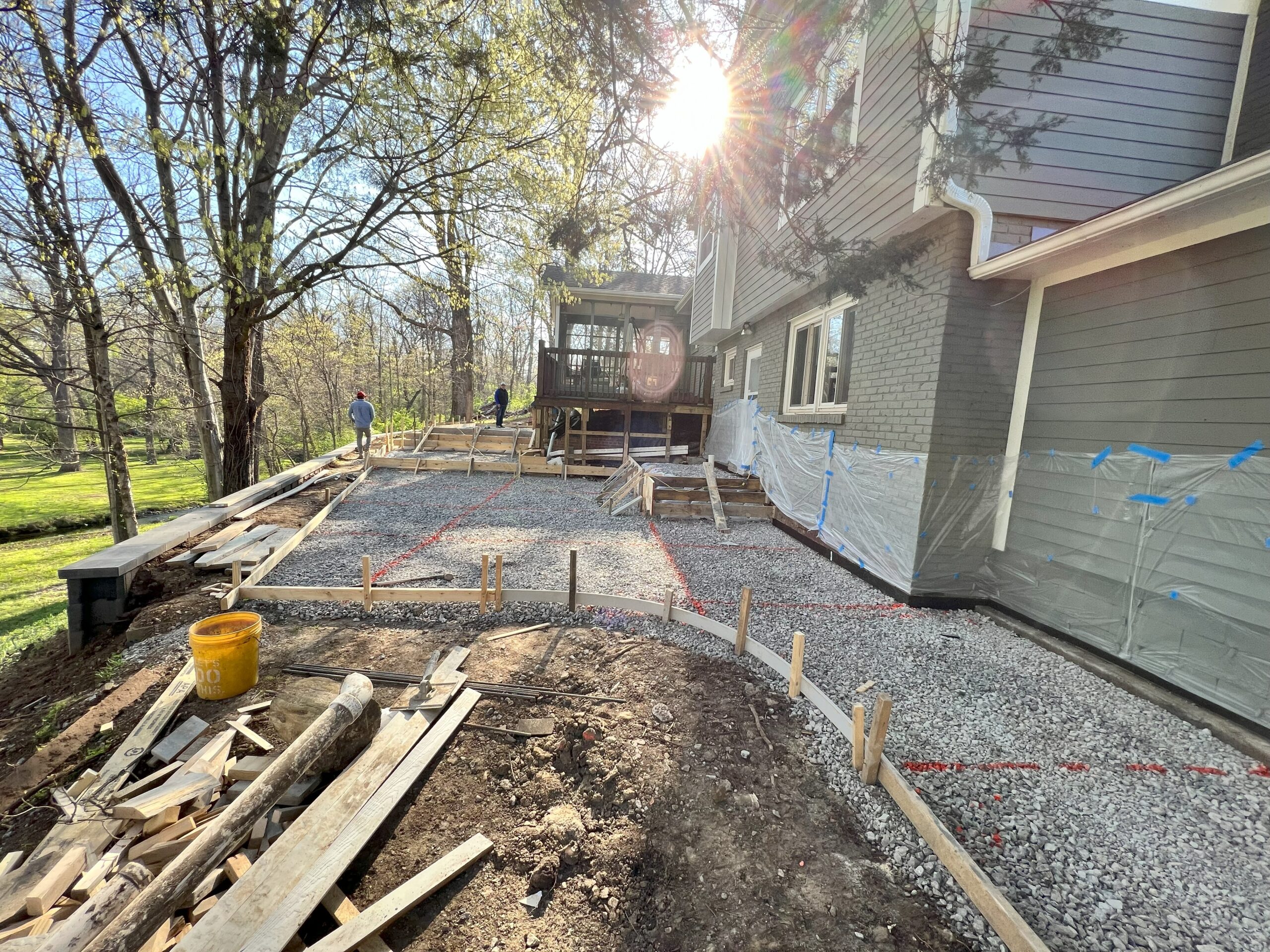For most aspects of your home, you want to invest in materials that will stand the test of time, require minimal maintenance, and offer a good return on investment. If your driveway is aging or you’re looking to add one to your property, concrete is generally the most recommended material for such a project. There are two methods to create a driveway using concrete: poured and pavers. Each option has its pros and cons, and the decision will ultimately depend on your preferences and budget. We’ll discuss some of the benefits and drawbacks of both options to help you make a more informed decision, as well as review how to potentially lay pavers over existing poured concrete spaces.
What Are the Pros and Cons of Pavers vs. Poured Concrete Driveways?
Poured concrete driveways are the traditional choice for homeowners looking for a fairly durable, low-maintenance option. Installation begins by preparing the area the driveway will occupy—this includes removing existing material if you’re replacing a driveway, leveling the ground, and creating a form. A form is created by placing wooden boards along the borders of where the driveway will go, creating a mold that will hold in the liquid concrete when poured. Before the concrete is laid, a packed gravel base must first be placed to provide some water drainage, and then rebar is placed in areas as needed. If it’s an area where drainage is particularly poor, other steps like grading of the land may be needed to prevent the accumulation of excess water during rain. It’s extremely important that everything be in place before the concrete is poured and that the forms are secure. If they move, the liquid concrete will be misshapen as it dries, leading to an imperfect final product. When the concrete is poured, it should be quickly leveled as it will begin to harden rapidly. The ambient temperature will affect how soon the concrete sets—if it’s hot out, the water in the mix evaporates faster, leading to a shorter hardening time.
The strength and longevity of poured concrete can give you peace of mind with minimal effort to take care of it over the years. Concrete is able to withstand heavy vehicles, making it great for high-traffic areas. With the wide range of weather situations in the Nashville area throughout the year, poured concrete is also excellent at holding up to rain, snow, and heat. Once set, this kind of driveway won’t require much of your time to keep it in good shape. Regular cleaning and sealing will help to prolong the life of the driveway as well as prevent cracks, and it only needs to be reapplied every five years. Poured concrete is more limited when it comes to design—there are options for the finish and color, but not as many compared to concrete pavers. Another negative is the potential for the poured concrete to crack over time due to temperature changes or ground shifting. Cracks can be repaired if small, but the imperfections can grow quickly, resulting in the need to replace all or part of the driveway. During installation, it also can take up to a week to fully set, meaning you’ll have to have alternative parking and house access options in the meantime. Drainage can be another problem with poured concrete, as water could be trapped without an easy way to escape unless a drainage solution is added to the driveway installation. While almost every home could benefit from residential drainage projects, it may not be something in your current plan or timeline.
Concrete driveway pavers are popular due to the more attractive aesthetic they tend to portray. Just like a poured concrete driveway, the area should be prepared by excavating and leveling, then packing crushed stone in the space to create a working surface. Working from a corner outward, the pavers are laid in the pattern of choice, securely against the edges and reassessed every few pieces to be certain the layout remains even. Because pavers are multiple individual pieces laid out like a puzzle, there’s a wide variety of design options and patterns to create intricate detail for the driveway. Once all the pavers are in place, the purposeful gaps between them are filled with polymeric sand or tiny stones that serve as a sort of grout. After tamping or compacting the pavers in place, the pavers can be sealed to add an extra layer of protection. These concrete pavers for driveways are actually more durable than poured concrete. A big hesitation for people when it comes to pavers is the cost—they’re more expensive than poured concrete by far. Depending on the type of paver and the size of the area, the cost could be 2-3x that of poured concrete. The maintenance level for pavers is relatively low, needing an occasional power wash or blowing of leaves, but they shouldn’t require much elbow grease to keep in good shape. With the tiny space between the pavers, there’s a more natural drainage built in that helps prevent moisture buildup and stop soggy ground nearby. It does take several days to lay a paver driveway, as each stone has to be moved and set individually, but pavers are ready for immediate use once the installation is complete, whereas poured concrete takes a week to cure.
“Work with skilled Nashville hardscaping and outdoor construction professionals who understand your vision and respect your schedule. Contact us for a free quote!”
Can You Put Pavers Directly on Concrete?
If you already have a poured concrete driveway and are looking to change the appearance, you could be thinking about putting new pavers over the existing concrete slab. It’s possible, and it avoids the hassle of removing the existing driveway and could save time, but there are some concerns to be aware of. If the existing driveway isn’t in great shape or is older, laying pavers over it could lead to uneven installation or shifting of the blocks over time. How do you lay pavers on a concrete driveway if you were to go that route, though? This starts with careful planning to determine whether your driveway is the right candidate by inspecting for damage and drainage issues. It will need to be cleaned, covered in coarse sand, and the pavers laid similar to how they would be in a fresh installation. Long term, this may not hold up as well as pavers installed directly on the ground—the short-term savings could turn into long-term spending.
Driveway Services From Greenway of Nashville
No matter which option you choose, driveways are not an easy project. There are a number of pitfalls in designing and executing the plan, and it’s a lot of physical labor that’s best left to professionals who know how to efficiently get the job done. Whether you’re looking for a concrete driveway with pavers or poured material, the meticulous hands at Greenway of Nashville can install one that will last for decades. We’re happy to help you assess the situation and provide a free, price-guaranteed quote by contacting us on our website or by calling us at (615)-238-4574.
Read more content related to:
